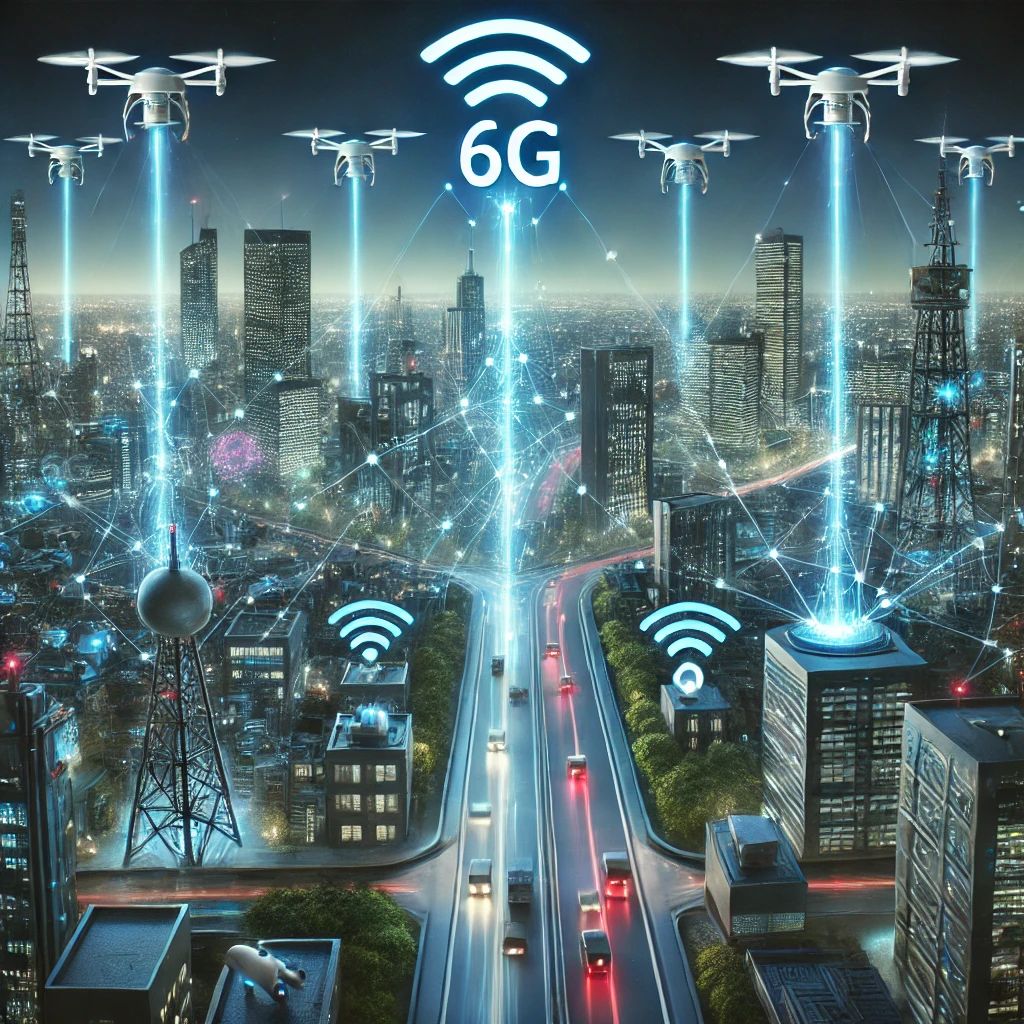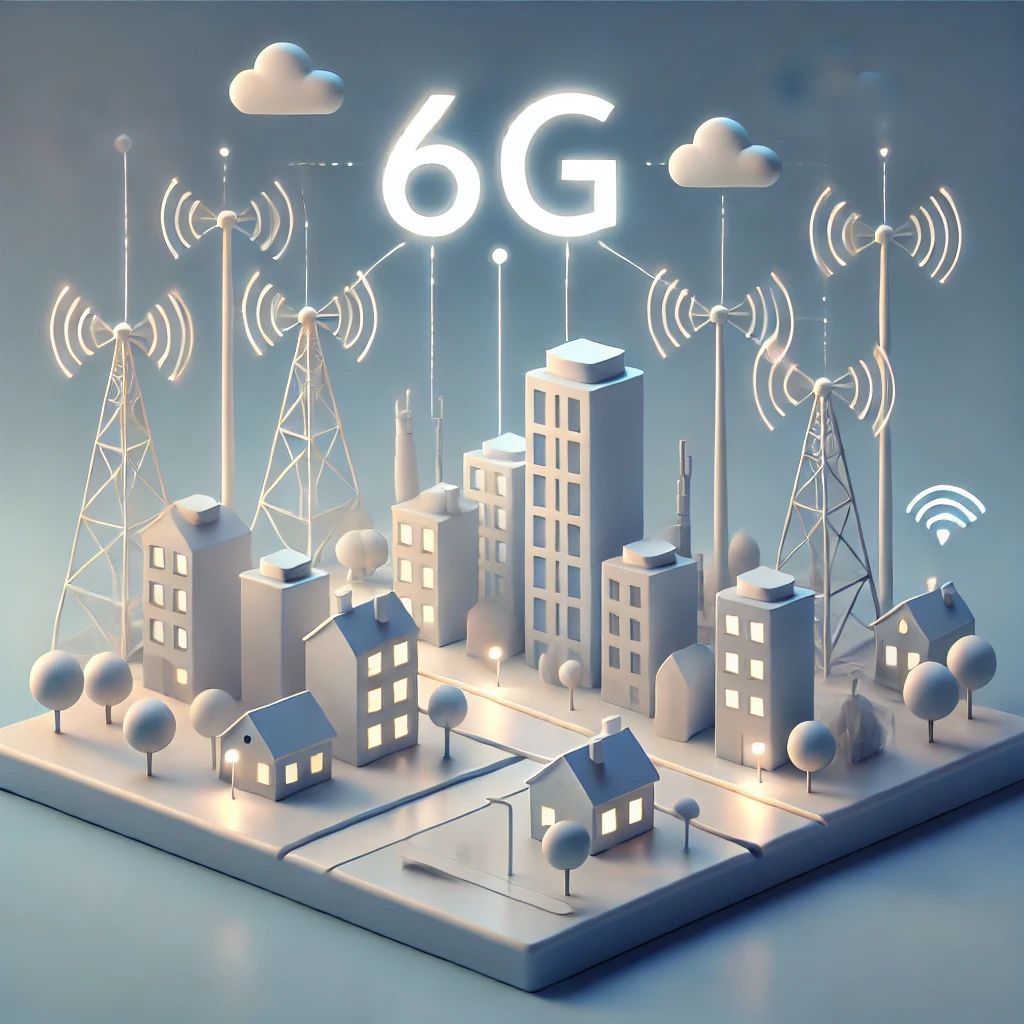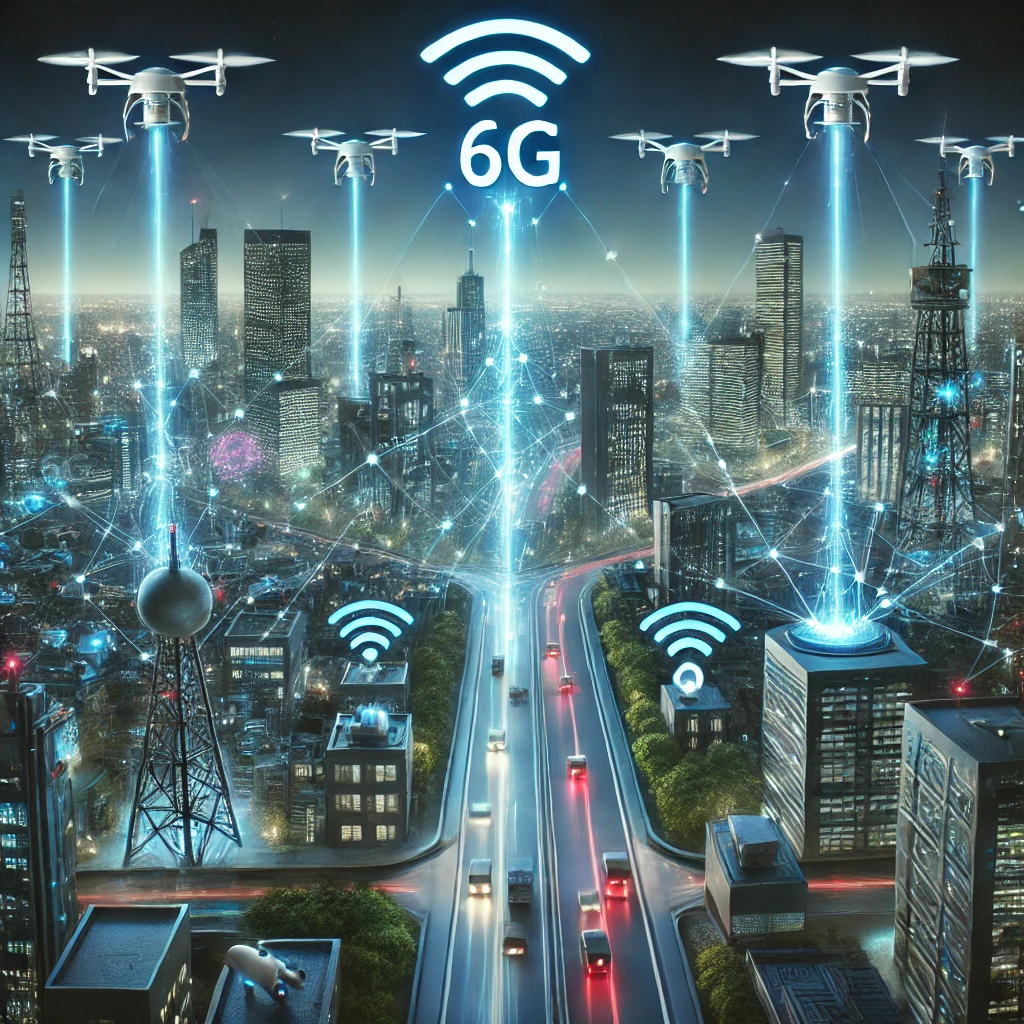In the world of telecommunications, the next big leap is the 6G mobile network. Just as the transition from 4G to 5G brought significant improvements in speed and capacity, 6G promises even higher standards. However, alongside these technological advancements, questions arise about how this new network may affect human health. In this article, we will explore how 6G will shape our future, what the research says about health risks, and how we can protect ourselves while using this technology.

What is 6G Mobile Network and Why is it Important for Our Future?
The 6G mobile network represents a major technological leap forward, offering even greater speed and capacity for communication compared to 5G. This new generation of networks is expected to deliver speeds of up to 1 terabit per second, opening up new possibilities for applications that require massive data transfer, such as autonomous vehicles, virtual and augmented reality, and smart cities.
With 6G, billions of devices will be connected to the network, including Internet of Things (IoT) devices. This will increase the efficiency of industries, simplify everyday connectivity, and enable new forms of communication and interaction between people and technology.
What Health Concerns Does 6G Bring?
As technology evolves, there are concerns about whether the new frequencies and technologies introduced by 6G could negatively impact our health. One of the main worries is that 6G will use significantly higher frequencies, even reaching the terahertz spectrum, which are not yet fully studied in terms of their long-term effects on the human body.
6G Mobile Network: Increased Frequencies and Their Potential Impact on the Body
The higher frequencies used by the 6G network will have a shallower penetration depth in tissues. This means that radiation will mainly concentrate on the surface of the skin, theoretically reducing the risk of internal organ damage. However, questions remain about how prolonged exposure to these frequencies might cause unknown health effects, especially since we will be surrounded by devices emitting such radiation continuously.
Long-Term Exposure to Radiation: What Does the Research Say?
Research to date has not shown significant negative effects from the radiation emitted by mobile networks, including 5G. International health organizations, such as the World Health Organization (WHO), have set limits on allowed radiation exposure, which mobile technologies follow. However, since 6G will use new, higher frequencies, further research is needed to determine if there are any long-term risks.
How Technological Stress Could Affect Mental Health
Beyond the physical impact, increased connectivity through 6G may lead to technological stress and digital fatigue. With more devices and networks surrounding us, there is a risk of increased psychological pressure and reduced privacy. Technology brings progress but also creates new forms of stress that can affect people’s mental well-being.
Is There a Real Danger from 6G Mobile Network Radiation?
Millimeter waves and higher frequencies used in 6G are often a subject of debate. One of the most common arguments against mobile networks is the radiation they produce, but studies so far have not shown that radiation from these waves can be harmful if used within permitted limits. It’s important to note that while higher frequencies have less penetration into the body, they are still subject to ongoing examination.
6G Mobile Network: Millimeter Waves and Their Impact
Millimeter waves are at the center of the debate on health and mobile networks. They are already used in 5G, but will play an even more crucial role in 6G. These waves can cause heating of the skin and other surface tissues, but the heating is very minimal and does not cause serious consequences. Current studies do not show a direct link between these waves and severe health problems, but additional research will be necessary.
Allowed Exposure Limits: What Do Experts Recommend?
The World Health Organization and other regulatory bodies set strict limits on the radiation emitted by mobile networks. The 6G technology will be designed to adhere to these standards, ensuring that radiation remains within safe boundaries. Experts recommend monitoring these limits and continuing research on the long-term effects of new technologies.
How to Protect Yourself and Use Technology Safely?
While 6G brings great technological benefits, it is important to follow health recommendations for the safe use of mobile devices. A few basic steps can help minimize the risk of prolonged radiation exposure.
Recommendations for Using Mobile Devices
Maintain distance from devices: When not using your phone or other mobile devices, keep them away from your body.
Reduce screen time: Limit the time spent on devices that continuously emit radiation, such as smartphones or tablets.
Avoid prolonged exposure to direct radiation: Use hands-free devices or earphones to reduce direct contact with your phone.
6G Mobile Network: Safety Measures and Following New Research
As technologies evolve, it is important to keep up with new research and recommendations from health organizations. By staying informed and following the latest information, we can use technology safely and responsibly.
How to Reduce Technological Stress in Everyday Life
In addition to physical protection, it is important to protect yourself mentally from increased technological stress. Set limits on device usage, maintain a balanced digital life, and take time for activities that don’t involve technology, such as physical exercise or spending time outdoors.

Conclusion
Technologies like 6G will undoubtedly shape our future, but it is important to stay informed about their potential health impacts. By using technology responsibly and following the recommendations of health organizations, we can enjoy the benefits of 6G while protecting our health at the same time.
For more information on health-related topics, visit our Health Journal. For more on healthy lifestyle habits, explore our Healthy Habits section.
More Useful Links:
Does Using Screens Late at Night Really Disrupt Sleep?
Headphones and Hearing Loss: How Dangerous Is It Really?
Digital Detox: How Disconnecting from Technology Can Boost Creativity
Darkness as a Healer: Hormonal Benefits of Controlled Exposure to Darkness
